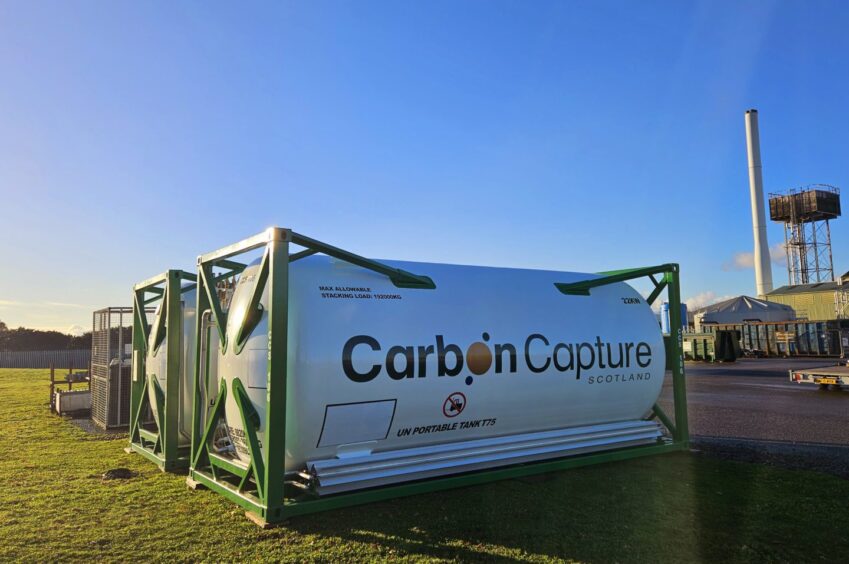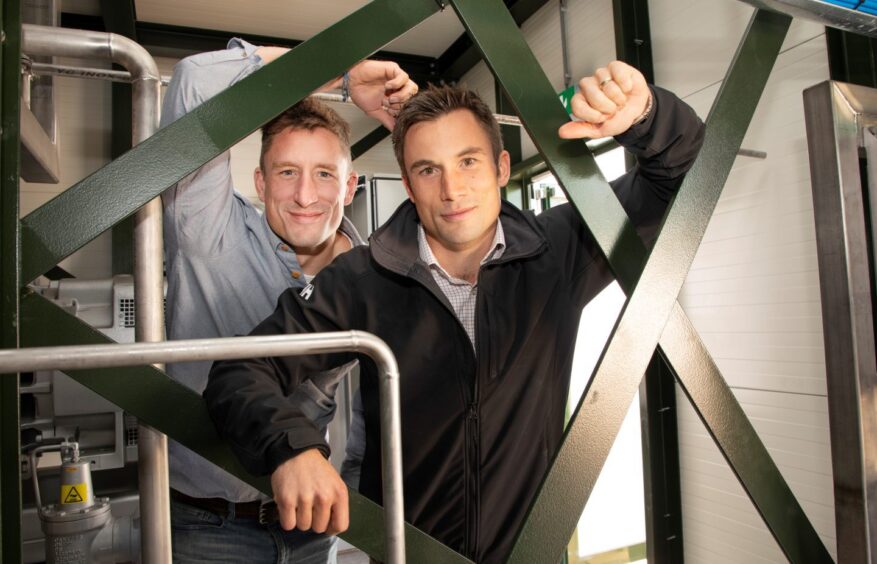
Carbon Capture Scotland Limited (CCSL) has signed a new deal to store CO2 emissions in Denmark, as slow regulatory progress hampers domestic options.
Together with German biomethane supplier Landwärme, the agreement will see the pair send CO2 captured from distillers and biogas plants across Scotland and Europe to the Stenlille project in Denmark for permanent storage.
CCSL says the collaboration will enable the two to remove a total of 300,000 tonnes of CO2 from the atmosphere, putting it among one of the global leaders in the field.
Yet the firm’s founders branded it “ludicrous” that UK options are not yet available, laying the blame with sclerotic UK policy development.
Founded by brothers Richard and Ed Nimmons, CCSL works with distillers, EFW firms and biomethane plants in the UK to capture “green” carbon dioxide – also referred to as biogenic CO2 – from their operations. Its mobile, modular technology captures CO2 from the decomposition, fermentation, or combustion of organic matter typically produced by these industries.
It has a target to sequester 90% of Scotland’s biogenic CO2 emissions by 2040.
The Dumfries and Galloway-based company has secured a string of partnerships, including a deal with Whyte & Mackay to capture CO2 from distilleries and with green investor Iona Capital for biomethane plants.
Speaking with Energy Voice, Richard Nimmons said tie-ups have already been secured for distillers across Speyside, the Highlands and at Invergordon, but a lack of local sequestration options means they are looking to Denmark to move the business forward.
“We’ve got live kit – it’s there, it’s capturing CO2, it’s transporting CO2. The only thing we can do with it now is sell to food and beverage companies and things like that.
“We want to sequester the CO2, we’ve got the geological stores. We just don’t have the licences,” he explained.
“The problem we’ve got is the UK Government aren’t issuing licences fast enough to get this over the line. The Europeans, at Northern Lights, have been active for a couple of years now, and we’re way behind.
“We’ve got more CO2 being emitted and we’ve got multiple geological storage options, yet we are not doing this. It’s ludicrous.”
‘Megaton-scale’ potential
Expected to open in April 2026, the Stenlille project will be one of Europe’s first CO2 sequestration sites. Also known as CO2RYLUS, operator Gas Storage Denmark last year tendered for its first CO2 volumes, offering up to 2 million tonnes of capacity, to be delivered by truck for injection into the reservoir over a period of 10 years.
CCSL also intends to outfit European plants in Denmark and the Netherlands with its capture systems, offering both export revenue for its technology and additional storage volumes. Storing volumes at Stenlille will also generate tradeable carbon removal credits.
It hopes the tie-up with Landwärme could lead to “megaton-scale” removals within the decade.
“It’s Scottish technology, we’re a Scottish company going into European markets and we’re just eager to get on with it and do this, but we’re held back,” added Mr Nimmons.
“Instead of waiting for the government like everyone else is doing, we’re being proactive and just getting on with it. If we’re not doing it here in the UK, we’ll take this and install it in Europe where they are more proactive.”
European CO2 vital to Acorn project
Unlike many larger CCS schemes, Stenlille is also based onshore, which allows firms like CCSL to move captured carbon across borders via truck. At present, the London Protocol forbids trans-national shipments of carbon – which is classified as ‘waste’ – to offshore sites.
Amendments to the policy were made in 2009 and 2019 to allow bilateral transfers, but a formal agreement between all signatories is sorely needed.
Mr Nimmons said the UK must also drive this policy shift if schemes like the northeast’s Acorn project are to progress, given the likely requirement to source extra volumes of CO2 from the European market to make the economics of the development work.
In the meantime, he implored government to set out “a clearer timeline of policy making and a higher priority of bringing CCS licences”, which he said would be crucial for other energy transition sectors to develop.
“You need [CCS] for hydrogen, you need it for decarbonisation. We need it for the big European investment funds to come in.
“They need to see that we’re going that direction – and any reluctance or slowing down is very damaging to our net zero future.”
Recommended for you

 © Supplied by CCSL
© Supplied by CCSL © Supplied by Gas Storage Denmark
© Supplied by Gas Storage Denmark